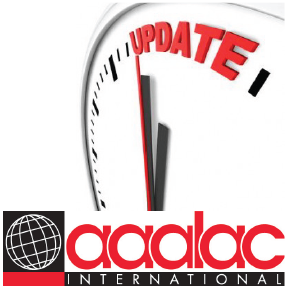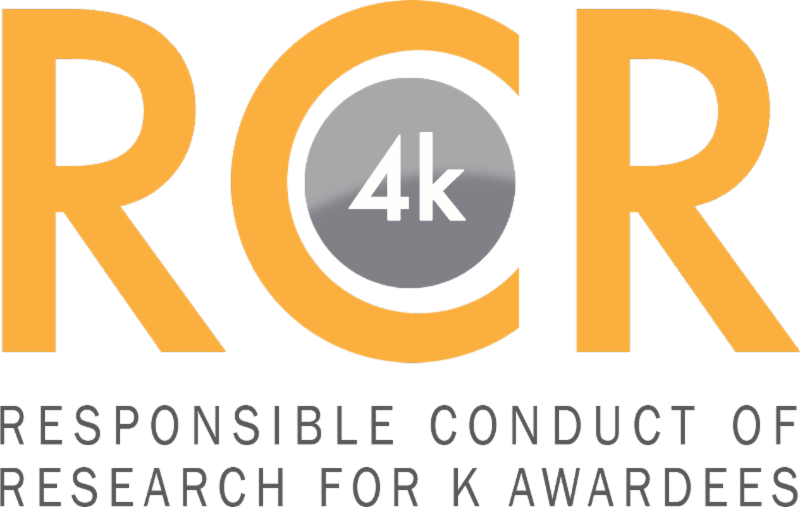EVENTS 
|
|
Thursday, December 7
1:00 PM - 4:00 PM
Rachel Upjohn Building, Garden Level Auditorium
Thursday, December 7
4:00 PM - 5:00 PM
NCRC Building 10, Research Auditorium
CMEs available!
Tuesday, December 12
1:00 PM - 3:30 PM
NCRC Building 10, Research Auditorium
Thursday, December 14
3:00 PM - 4:30 PM
Ford Amphitheater
Friday, December 15
12:00 PM - 1:00 PM
NCRC Building 10,
Room G065
Monday, January 15
12:00 PM - 1:00 PM
Dow Auditorium
Light reception to follow!
|
RESEARCH NEWS 
|
QUICKLINKS 
|
|
 |
|
Training & Professional Development
|

Select Research Funding &
Award Opportunities
|
|
Award
|
Deadline
|
|
|
Thursday,
January 4, 2018
|
|
|
Monday,
January 15, 2018
|
|
|
Monday,
January 15, 2018
|
|
|
Tuesday,
January 30, 2018
|
|
|
Wednesday,
February 28, 2018
|
|
|
Wednesday,
February 28, 2018
|
External Limited Submissions
|
Award
|
Deadline
|
|
|
Friday,
December 15
|
|
|
Monday,
December 18
|
Bridging Support
|
Award
|
Deadline |
|
|
Friday,
December 15
|
Other Opportunities
| Award |
Deadline |
|
|
Friday,
December 15
|
|
|
Wednesday,
December 20
|
|
|
Friday,
December 22
|
|
|
Friday,
February 2, 2018
|
|
|
Monday,
February 5, 2018
|
Featured Foundation Grants
| Award |
Amount |
Deadline |
|
|
$3M
|
Friday,
December 22
|
|
|
$200K
|
Thursday,
January 11, 2018
|
|
|
$300K
|
Monday,
January 22, 2018
|
|
|
$300K
|
Sunday,
January 28, 2018
|
|
|
$125K
|
Monday,
February 5, 2018
|
Visit the Michigan Medicine Corporate and Foundation Relations website for more foundation funding opportunities.
|

U-M Receives Full AAALAC Accreditation
|
A message from the Animal Care & Use Program
|

In the notification letter that we received on November 22, the AAALAC Council commended the entire U-M animal care and use community for our progressive efforts to build a culture of sustained excellence and shared responsibility for upholding the highest animal welfare standards in all aspects of our work.
The notification letter and subsequent full accreditation are a result of the very positive AAALAC Site Visit that took place in July. We want to express our sincerest gratitude and appreciation for the tremendous levels of engagement and enthusiasm you showed leading up to, and throughout, the Site Visit. Our Program's success, and the success of this visit, would not be possible without the commitment that each and every one of you has made on a daily basis to compassionate animal care and responsible research conduct. Thank you for making this commitment to excellence.
In this time of tremendous momentum for the Animal Care & Use Program, it is imperative that we continue to:
- Explore new approaches to not only achieving, but also exceeding, national and professional standards in animal care and use,
- Refine our practices to ensure the most humane conditions and procedures possible, and
- Strengthen our shared commitment to rigor and accountability in the pursuit of innovative scientific advancements to benefit both human and animal health.
As the nation's top public research university, this is the commitment we must make to the animals under our care, to our research sponsors, to our peers, and to one another when afforded the privilege of working with animals in research, testing, and teaching.
Thank you for your ongoing partnership and support of our Program as we continue to pursue new standards of excellence in animal care and use.
Sincerely,
S. Jack Hu, Ph.D.
Vice President for Research
Institutional Official, University of Michigan
Melissa Dyson, DVM, M.S., DACLAM
Interim Attending Veterinarian
Interim Director, Unit for Laboratory Animal Medicine
Associate Professor of Laboratory Animal Medicine
William Greer, B.S., CPIA, LAT, CM
Assistant Vice President - Animal Program Compliance Oversight
Director, Animal Care & Use Office
Daniel D. Myers, DVM, DACLAM
Professor of Surgery
Chair, Institutional Animal Care & Use Committee
|

|
CBSSM Postdoctoral Research Fellowship
|
The mission of CBSSM is to be the premier intellectual gathering place of clinicians, social scientists, bioethicists, and all others interested in improving individual and societal health through scholarship and service.
|
Evaluation of candidates will begin on
January 12, 2018, and will be evaluated on a rolling basis until
January 31, 2018.
|
Bioethics Post-Doctoral Research Fellow
Active projects in bioethics at CBSSM currently include the ethical, legal, and social implications of genomic medicine, human subjects research ethics, empirical research with relevance to clinical ethics, global bioethics, gender equity, reproductive justice, deliberative democratic methods in bioethics, resource allocation, ethical issues associated with learning health systems, and the sociology of medical ethics/bioethics, among others. Candidates' area of focus must be in bioethics, although their backgrounds may be in social or natural sciences, humanities, medicine, or law.
Decision Sciences Post-Doctoral Research Fellow
This fellowship focuses on understanding and improving the health care communication and decisions made by both patients and providers. Past postdoctoral fellows have included scholars whose research in health care communication and decision making has been approached using theories drawn from social cognition, motivation and emotion, risk communication, human factors, ethics, and economics.
Postdoctoral fellows are expected to collaborate on established projects and are encouraged to conduct independent research with an emphasis on study inception, manuscript writing, and applying for grants. CBSSM's resources and collaborative support enable fellows to build their own research programs.
|

Changes to Hazardous Agents Administration SOP Coming Soon
|
Compliance expected by Friday, December 15
|
|
These changes affect personnel (including but not limited to) involved in the cage changing of animals, personnel involved with equipment contaminated with hazardous substances, and personnel involved in the administration of these hazardous agents to animals.
All individuals, including ULAM husbandry staff and investigative personnel, are expected to be in compliance with the new and revised procedures outlined in the updated SOP by Friday, December 15, 2017.
For your convenience, posters summarizing key SOP changes have been placed in affected animal care and use facilities across campus. To ensure proper compliance, everyone who is, or will be, performing procedures that involve the handling of animals or animal equipment contaminated with hazardous agents must read the SOP in its entirety.
|

Today!
Illumina Immuno-Oncology Seminar
|

The Department of Pathology and Illumina invite you to join them for a unique opportunity where they will bring together speakers from across the academic, clinical, and biotechnology spectrum to discuss how they are using next-generation sequencing in this exciting space.
|
Tuesday, December 5
9:00 AM - 12:45 PM
Med Sci II, West Lecture Hall
Lunch and refreshments will be provided
|
Whether you are interested in advancing your research, bringing game-changing therapies to market, or partnering to maximize the effectiveness of translational studies, this event aims to provide the research community with insights and ideas to further our understanding of how the immune system can be optimized to fight cancer.
|

Tomorrow!
Bishr Omary: Frontier Seminar Series
|
|
Throughout Michigan Medicine, there are remarkable stories of discoveries in basic science, clinical, and translational research. Our investigators and their research teams are on the forefront of science frontiers in biomedical research, and we are presenting their breakthroughs and achievements in a monthly seminar program.
The next exciting seminar, Precision Health & Chronic Kidney Disease, features Jeffrey B. Hodgin, M.D., Ph.D. and Laura H. Mariani, M.D., MSCE. This topic is facilitated by Matthias Kretzler, M.D.
|
Wednesday, December 6
8:00 AM - 9:00 AM
Ford Auditorium, University Hospital
|
The fast-paced hour will include two 20-minute presentations followed by 20 minutes of interaction between the two speakers, Dr. Kretzler, and the audience. Informal discussion will follow at a reception.
Future Frontier Seminars occur on the second Wednesday of each month, from 4:00 PM - 5:00 PM in the Ford Auditorium. Further details on future seminar topics, speakers, and dates can be found at the bottom of the series webpage. I invite you to mark your calendars and plan on attending as many of them as you can.
|

Challenges in Moving to High Value Healthcare: Research, Policy, and Innovation
|
Join IHPI on Thursday, December 7
|
Eric Schneider, M.D., Senior Vice President for Policy and Research, The Commonwealth Fund, will discuss the current landscape of research on value. Paul McCreadie, M.S., M.B.A, Managing Director, Arboretum Ventures, will address ways to enhance healthcare value through innovations in technology. An interactive discussion with audience participation will follow.
|
Thursday, December 7
4:00 PM - 5:00 PM
NCRC Building 10, Research Auditorium
|
CMEs available. Reception and networking to immediately follow the presentation.
This seminar is a part of the IHPI Research Seminar Series, a lecture-based program designed to share innovative health services research topics, studies, and programs, with clinicians, faculty, research staff, and students from a variety of disciplines.
|

Improve Your Mentoring Skills at MICHR Mentoring Academy
|

The Mentoring Academy is designed for senior postdocs and faculty in clinical and translational research. Participants in this program will learn how to better coach and counsel other less-experienced mentors, as well as enhance their own interpersonal skills for mutually beneficial mentor-mentee interactions. Participants in the Mentoring Academy will address challenges facing faculty mentors via case studies, group discussions, and role-plays.
|
The application deadline is December 20, 2017
The MICHR Mentoring Academy starts in January 2018
|
The Mentoring Academy will consist of 6-8 required one-hour sessions based on the widely used Mentor Training for Clinical and Translational Researchers from the University of Wisconsin-Madison Center for the Improvement of Mentored Experiences in Research.
|

Renew Before It's Due:
Continuing Education Re-Certification
|

Earlier this year, the Institutional Animal Care & Use Committee (IACUC) announced that it was expanding the animal care and use training program to include continuing education.
Continuing Education entails a three-year expiration date for all IACUC required online animal care and use training, and applies to ULAM online training classes in the areas of:
- Orientation to Animal Care & Use at the University of Michigan
- Introduction to Species
- Survival Surgery
- Hazard Containment
To ensure that individuals remain knowledgeable of advancements in laboratory animal science and apprised of important updates to the policies and practices of the U-M Animal Care & Use Program, research personnel will now be prompted to "recertify," or retake, online training every three years.
Renew Before It's Due
Online training ready for re-certification will show in your MLearning Learning Plan as early as six months before it is due. View IACUC required training due in your Learning Plan here:
https://trainingportal.med.umich.edu
Tell Others to Renew, Too
Principal Investigators and Laboratory Contacts are encouraged to monitor IACUC training requirements for their protocol
New protocols, amendments, and protocol renewals will be approved once personnel have completed all required online training.
If you have any questions or concerns about animal care and
use training, please contact the ULAM Training Core at
|

K Awardees Can Fulfill RCR Requirement With MICHR Course
|

Do you need Responsible Conduct of Research (RCR) training?
The Michigan Institute for Clinical & Health Research (MICHR) is offering a free course for current K-grant awardees, focusing on responsible conduct of research. The interactive, practice-based series will help participants identify and address RCR issues in their own K-funded research and will satisfy related requirements of the NIH K23 application. Participants will receive mentoring from faculty experienced in RCR areas.
The six-part series begins February 21. Participants should register only for the sessions they wish to attend; registration closes one month before each session. Once registration is full, interested K awardees may still register and will be put on a waiting list.
|

Holiday Hours for UMMS OoR Units
|
Stay informed, plan ahead, and act early
|

Several units in the Medical School Office of Research will be closed or operating at limited capacity during the upcoming holiday season. Below is a list of operating schedules and plans for service areas that may have a direct impact on researchers.
To ensure that your research needs are met quickly and efficiently before the end of the calendar year, please review and share these schedules with your team, plan ahead, and act early.
Biomedical Research Core Facilities
As in previous years, the Biomedical Research Core Facilities will have special holiday hours to allow staff members to use their University Season Days. Each individual laboratory's schedule may vary during the holidays, so please make sure to review their hours here.
The CBR will be closed on December 25 - January 1. CBR staff will be contacting study teams directly about individual holiday schedules and determine how biospecimens should be managed during this time. The last day to receive specimens at the CBR is Friday, December 22.*
*During the brief closure, CBR staff will be on-call to respond to emergencies. Please direct your questions to [email protected].
Grant Review & Analysis Office
The deadlines to submit research proposals never stop, but the Grant Review & Analysis Office staff will be out of the office from the end of business on Friday, December 22 to the start of business on Tuesday, January 2, 2017.
If you have an emergency proposal,* you will be able to reach the Grant staff by phone. In this instance, please call the main Grant Office phone number at 734-763-4272, which will be forwarded to a cell phone. If needed, Grant staff will facilitate contacting ORSP during this time.
*Emergencies are considered to be proposals that need to be submitted by Wednesday, January 3 or sooner. If you know you have an upcoming submission, please contact the Grant Office in mid-December.
IRBMED
The IRBMED Office will close at the end of business on Friday, December 22, and will reopen at start of business on Tuesday, January 2, 2017.
Calendar Review & Analysis Office
CRAO will close at the end of the business day on Friday, December 22, and will re-open at the start of the business day on Tuesday, January 2, 2017.
Several service areas in ULAM will be closed or operating at limited capacity during the upcoming holiday season. For a list of operating schedules and plans for areas that may have a direct impact on researchers, visit their website.
If you have specific questions about a particular unit or services not listed above, please contact that unit directly. Happy Holidays from all of us at the UMMS Office of Research!
|

Yottabyte Research Cloud Computing Platform is now HIPAA-Compliant
|
 Advanced Research Computing - Technology Services (ARC-TS) is pleased to announce that the Yottabyte Research Cloud (YBRC) computing platform is now HIPAA-compliant. This means that YBRC and its associated services can accept restricted data, enabling secure data analysis on Windows and Linux virtual desktops, as well as secure hosting of databases and data ingestion.
Advanced Research Computing - Technology Services (ARC-TS) is pleased to announce that the Yottabyte Research Cloud (YBRC) computing platform is now HIPAA-compliant. This means that YBRC and its associated services can accept restricted data, enabling secure data analysis on Windows and Linux virtual desktops, as well as secure hosting of databases and data ingestion.
The new capability ensures the security of restricted data through the creation of firewalled network enclaves, allowing HIPAA-aligned data to be analyzed safely and securely in YBRC's flexible, robust, and scalable environment. Within each network enclave, researchers have access to Windows and Linux virtual desktops that can contain any software required for their analysis pipeline.
This capability also extends to other ARC-TS database and ingestion services:
- Structured databases: MySQL/MariaDB and PostgreSQL
- Unstructured databases: Cassandra, MongoDB, InfluxDB, Grafana, and ElasticSearch
- Data ingestion: Redis, Kafka, RabbitMQ
- Data processing: Apache Flink, Apache Storm, Node.js and Apache NiFi
- Other data services are available upon request
YBRC is supported by U-M's Data Science Initiative launched in 2015. YBRC was created through a partnership between Yottabyte and ARC-TS announced last fall.
These tools are offered to all researchers at the University of Michigan free of charge, provided that certain usage restrictions are not exceeded. Large-scale users who outgrow the no-cost allotment may purchase additional YBRC resources.
|

Negative Control Cerebrospinal Fluid Samples
|
Contact the Central Biorepository
|
 The Central Biorepository receives and distributes biospecimens and data from University of Michigan contributors across the spectrum of medical research. This includes recently added cerebrospinal fluid (CSF) samples from patients with Normal Pressure Hydrocephalus. These samples may be used as negative controls for a variety of neurological disorders.
The Central Biorepository receives and distributes biospecimens and data from University of Michigan contributors across the spectrum of medical research. This includes recently added cerebrospinal fluid (CSF) samples from patients with Normal Pressure Hydrocephalus. These samples may be used as negative controls for a variety of neurological disorders.
Studies of CSF are important for multiple clinical research questions, including understanding neuroinflammation, infection, and brain malignancy. A central repository of CSF that can be used as control specimens will facilitate numerous other studies and reduce risk for participants.
|
"We are banking CSF so that it can be used as a comparison for multiple different studies that employ analysis of protein or nucleic acids in CSF."
- Benjamin Singer, Ph.D., PI of the study.
|
These samples are already included in two downstream studies:
- A study of new techniques to detect and diagnose specific types of brain tumors without a brain biopsy, by examining minute amounts of tumor-associated DNA in the CSF.
- A study of using next-generation DNA sequencing to improve diagnosis of meningitis and encephalitis.
As with all CBR-managed samples, these are available for additional research projects. To view the full list of active CBR programs, visit their website.
|

New Precision Health Initiative
|
The Data Office playing a supportive role
|
 Earlier this month, University of Michigan President Mark Schlissel announced the launch of U-M's Precision Health Initiative. This campus-wide endeavor will bring together existing resources, people, and technologies aimed at finding personalized solutions to improve the health and wellness of individuals and communities. Earlier this month, University of Michigan President Mark Schlissel announced the launch of U-M's Precision Health Initiative. This campus-wide endeavor will bring together existing resources, people, and technologies aimed at finding personalized solutions to improve the health and wellness of individuals and communities.
The Data Office for Clinical and Translational Research, a unit of the Medical School Office of Research, will play a supportive role to our researchers by connecting them with clinical health data, genetic data, and the researcher's own data in a secure and reproducible way. They will do this by:
- Enhancing data services and tools
- Continuing to function as a "front door" to data access and honest broker services
Using DataDirect for your research? The Data Office has
pre-calculated both the Charleson and Elixhauser comorbidity indices in the Research Data Warehouse. They are both available for download in DataDirect with an IRB-approved study. Several updates to the self-serve tool include:
- Faster performance
- Updated "Starting Population" function
- New "Share Your Query" email notification
- Orders are now available for download
It is important to note that email is not a secure means of transmitting PHI - instead, MiShare should be used to move data. And all PHI should be stored on a HIPAA-compliant secured shared drive or within an approved Michigan Medicine environment, not on the desktop or personal server.
|

Future Featured Foundation Grants
for Biomedical Research
|

In addition to the quickly-approaching deadlines listed in Featured Foundation Grants above, the following
opportunities are also available.
The Michigan Medicine Corporate and Foundation Relations team can assist in the funding process, including providing direct communication with the funding entity to obtain guidance on project appeal/applicability to the funder, providing examples of previously funded U-M proposals, and answering general faculty questions. For a wide range of Foundation and Corporate funding opportunities, please visit our website.
Please note: A faculty member's research administrator will serve as the liaison on all aspects of the internal application process. If you are unsure of whom to talk to, your department contact can be found here. If you pursue any grant opportunity featured in this edition of Research News, please contact your research administrator first to formulate a submission plan and timeline.
|
Award
|
Amount
|
Deadline
|
|
|
$150K
|
Friday,
March 2, 2018
|
|
|
$600K
|
Wednesday,
March 14, 2018
|
|
|
$900K
|
Thursday,
March 15, 2018
|
|
|
$50K
|
Sunday,
April 1, 2018
|
Questions about these award opportunities should be directed to Joe Piffaretti in Michigan Medicine Corporate and Foundation Relations via email or phone at 734-763-1318.
If you are interested in receiving weekly funding announcements that include opportunities such as those listed above, please contact Joe Piffaretti to be added to the faculty/staff email circulation list.
|
NIH & ORCID:
Connecting Productivity
|
Sharpening the Focus: Tips on Grant Proposal Preparation
|

By Jill Jividen, Ph.D., Assistant Director for Research Development, U-M Medical School Office of Research
(One in a series of tips published in UMMS Research News about writing proposals.)
The non-profit organization ORCID (Open Researcher and Contributor Identification) has been working to help researchers streamline the collection and connection of their professional activities for application, manuscript, and biosketch purposes. The system creates a "personal digital identifier" that distinguishes researchers from those with similar names, links investigators to their specific outputs, and ensures researchers get credit for their work. More than 7,000 journals currently include ORCID in their workflows, and ORCID's user base is now 10 times larger than NIH's eRA Commons system.
To further reduce the burden of curating the same biographical and professional data in many places, NIH has expanded its partnership with ORCID. While researchers have been able to link their ORCID with SciENcv (Science Expert Network Curriculum Vitae) to create a biosketch, they can now use a real-time link to associate ORCID with their eRA accounts.
The functionality of this connection is intended to grow, eventually allowing ORCID to populate NIH applications and reporting requirements, and allowing public data on NIH grant awards to populate ORCID.
The two organizations also will partner on ORBIT (ORCID Reducing Burden and Improving Impact Tracking), an effort to expand the ORCID hub to include all products and activities found on typical CVs, such as grants, teaching, presentations, etc.
|
|
|